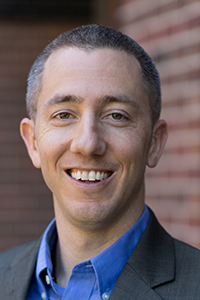Date/Time
Date(s) - 10/25/2021
9:35 am - 10:30 am
Categories
Benjamin Hackel, Ph.D.
Associate Professor of Chemical Engineering and Materials Science
University of Minnesota
Title: Engineering Developable Proteins for Molecular Diagnostics and Therapeutics
Abstract: Proteins are broadly functional macromolecules that can be engineered as therapeutics, diagnostics, and industrial reagents. Yet, select biological activities can be challenging to achieve within the constraints of natural amino acid chemistry. We have developed a chemical biology platform to engineer protein-small molecule hybrids. Combinatorial genetic libraries of protein variants are tethered to the surface of a yeast cell, chemically conjugated with pharmacophore, and sorted for active binders. We engineered hybrids that exhibit superior potency and selectivity relative to either protein or pharmacophore alone. Hybrids were engineered with different conjugation sites, linkers, protein sequences, and targets, which demonstrates the breadth of the approach. As a second challenge in protein engineering, shortcomings in biophysical robustness often limit practical utility hindering otherwise functional proteins from progressing in the product development pipeline. We have advanced an experimental/bioinformatic protein engineering platform to alleviate such “developability” challenges.
Bio: Ben Hackel is an Associate Professor of Chemical Engineering and Materials Science at the University of Minnesota. He earned degrees in chemical engineering from the University of Wisconsin (B.S. 2003, advised by Eric Shusta) and MIT (Ph.D. 2009, advised by Dane Wittrup) and performed postdoctoral research in the radiology department at Stanford University (Sam Gambhir). Since its inception in 2011, the Hackel lab has advanced protein engineering technologies to develop physiological molecular targeting agents for molecular diagnostics and targeted therapy, with a focus on oncology and infectious disease.

